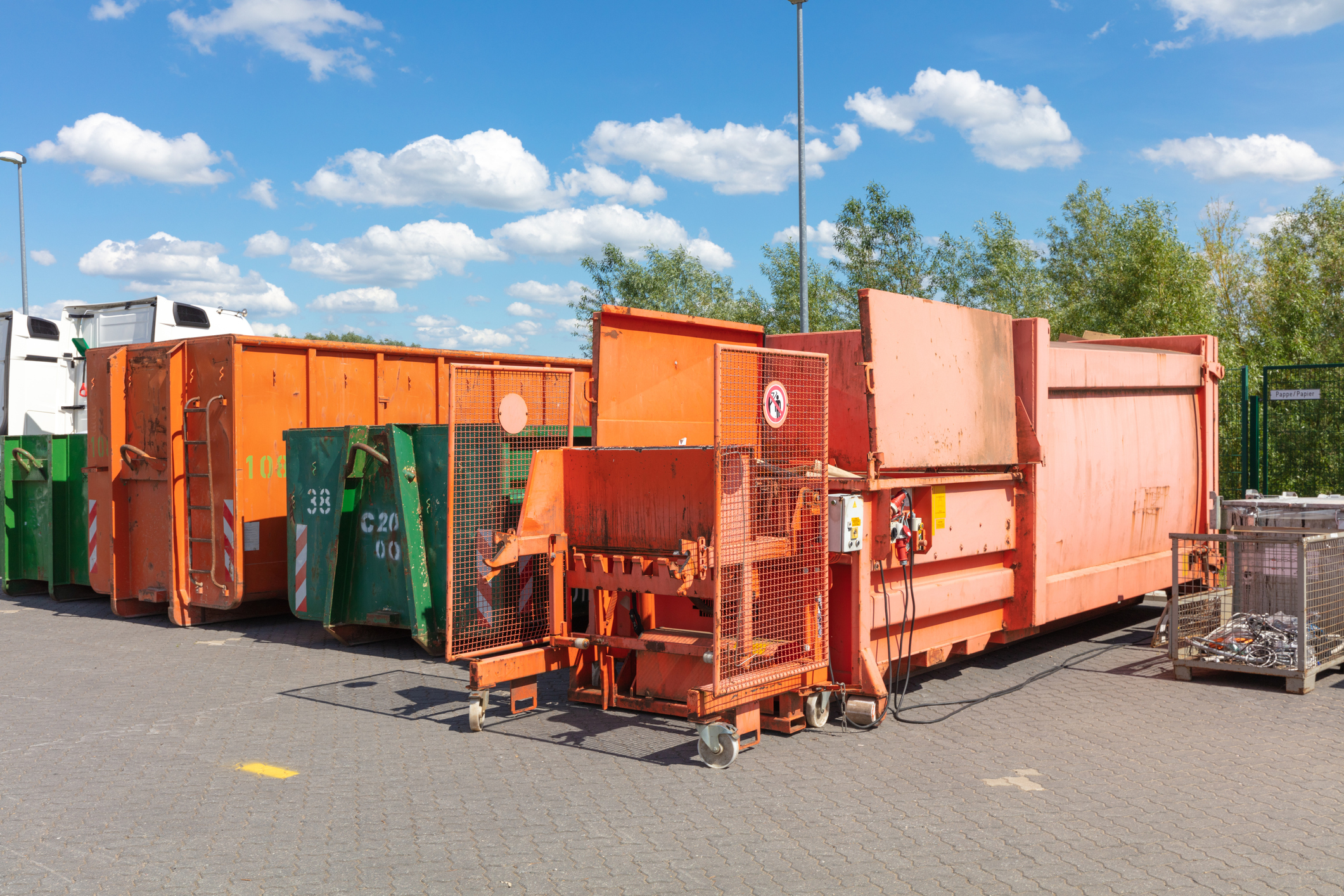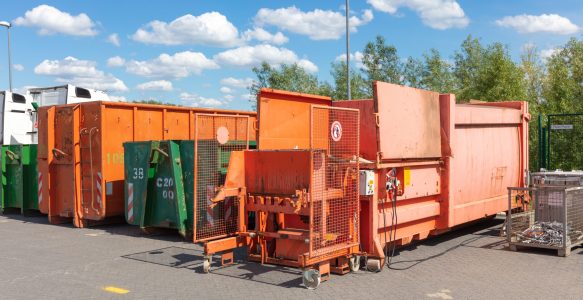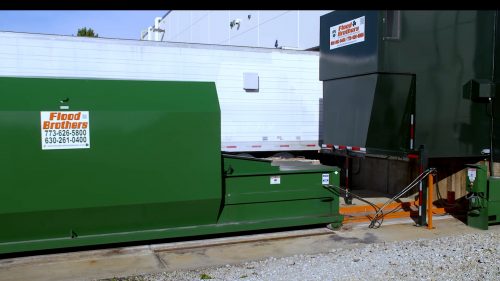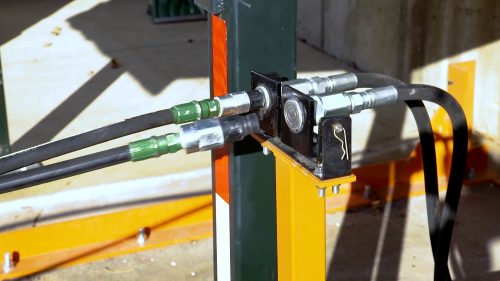The arrival of spring is a good time for businesses to do some deep cleaning and a thorough evaluation of their equipment maintenance requirements. It is important to look beyond the surface and address the maintenance needs of essential machinery that powers our daily operations. No matter the market segment or industry, businesses around the world have one thing in common, waste.
Effective Waste Management is Vital
Managing waste effectively and efficiently is important for many reasons such as:
- Maintaining a clean and hygienic environment for employees and visitors
- Contributing to responsible waste management and recycling
- Maintaining a positive company image
- Cost control, minimizing equipment downtime and cleanup costs
- Mitigate an interruption to business operations
Prioritizing Commercial Self-Contained Compactor Care
Maintaining commercial trash compactors is a proactive step toward ensuring uninterrupted business operations. Ignoring the health of your compactor can lead to operational bottlenecks, where accumulated trash not only becomes an eyesore but also a potential financial drain due to increased cleanup costs and downtime.
The Cost of Neglect
The importance of incorporating commercial compactor maintenance into your spring cleaning checklist cannot be overstated. Regular upkeep prevents the unexpected breakdowns that can disrupt your business flow and lead to costly repairs. Just as important as preventive maintenance, is preventing disaster, such as those caused by outside forces when hydraulic lines are snapped or disconnected incorrectly.
Essential Maintenance Tips for Commercial Compactors
- Fluid Vigilance – Maintaining the hydraulic system of your compactor starts with regular checks of the hydraulic fluid, along with oil and other essential fluids. Ensuring these are at optimal levels and conditions prevents mechanical failures and ensures smooth operation.
- Component Inspection – A thorough examination of the compactor’s internal components, such as switches, motors, pumps, cylinders, housings, and oil filters, is crucial. This routine check helps in identifying wear and tear before they escalate into significant issues.
- Electrical System Care- Regular inspections of the compactor’s electrical system, including wires, switches, and relays, are essential to prevent electrical failures that could halt operations.
- Lighting and Exterior Check – Maintaining the compactor’s external components, including warning lights, emergency stops, doors, hinges, latches, and rollers, ensures safety and operational efficiency.
- Hydraulic System Health – A detailed review of the hydraulic system, focusing on hoses, couplings, operating pressure, and fluid levels, is vital. This prevents leaks and pressure issues that could impair the compactor’s performance.
- Embracing C-BASS Technology – The C-BASS (Compactor Break Away Safety System) by Stucchi addresses a critical safety concern by ensuring that hydraulic hoses disconnect safely if pulled apart unexpectedly, preventing equipment damage, environmental contamination, and potential injuries. It’s an essential upgrade for enhancing the safety and reliability of your compactor operations.
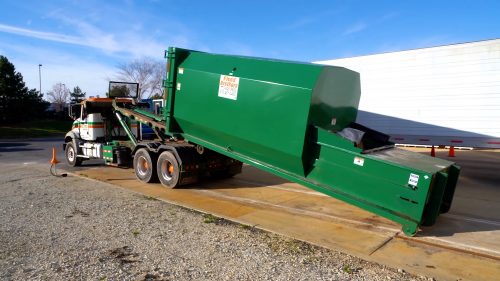 The Role of Waste Management and Compactor Maintenance Services
The Role of Waste Management and Compactor Maintenance Services
Advantages of Expert Care
Hiring professional maintenance services for your commercial compactor offers significant advantages. Experts bring a depth of knowledge and experience in handling complex systems, ensuring that your equipment operates at peak efficiency. Their specialized skills in diagnosing and resolving issues can prevent costly downtime and extend the lifespan of your machinery.
Safety First
Safety is paramount when dealing with hydraulic and electrical systems in commercial compactors. Professionals are trained to navigate these systems safely, reducing the risk of accidents and ensuring compliance with regulatory standards. Regular maintenance checks by qualified technicians can identify potential hazards before they become serious problems, safeguarding both workers and the workplace environment.
Mitigating Financial and Operational Risks
One often-overlooked aspect of compactor maintenance is the disconnection of hydraulic systems before hauling. Failure to do so can result in significant operational disruptions and financial losses, including damage to the equipment and potential environmental hazards.
Stucchi’s CBASS: A Revolutionary Solution
Introduction to CBASS
Stucchi’s Compactor Break Away Safety System (CBASS) offers a groundbreaking solution to common challenges faced in the operation of self-contained compactors. Designed to prevent equipment damage and enhance public safety, CBASS ensures a seamless breakaway in the event of unexpected disconnections, addressing critical needs in compactor maintenance and operation.
Features and Benefits
- Prevention of Injuries: CBASS minimizes the risk of life-threatening incidents by ensuring a safe disconnection process, protecting both operators and bystanders.
- Environmental Protection: By preventing hydraulic oil spills, CBASS helps avoid contamination of the surrounding environment, promoting sustainability.
- Reduced Equipment Damage: The system’s innovative design decreases the likelihood of damage to onsite equipment, saving businesses from incurring high repair costs.
Stucchi offers innovative hydraulic solutions, including the groundbreaking Compactor Break Away Safety System (CBASS), designed to enhance operational safety and efficiency. By addressing common issues with hydraulic systems and providing robust maintenance services, we ensure your compactor operations are seamless and secure. Contact us to explore how our solutions can benefit your business and safeguard your operations.
